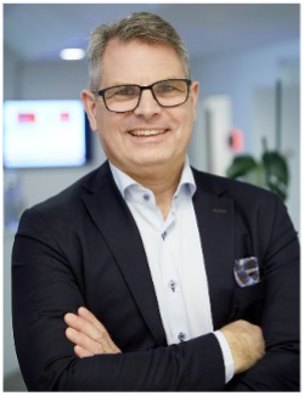A challenging third quarter
Sales increased by 12 percent to SEK 126 million. Adjusted for exchange rates, organic growth decreased by 8.1 percent. This decrease is due to the challenging market conditions and shortage of electronic components for production of instrument during July and August that we were unable to recover during September.
Our sales are largely denominated in dollars, which means that they were positively affected by the dollar’s appreciation. Sales growth was negatively affected, however, as the strong dollar drove up the prices of our products in local currencies. The price increases could not offset the lower volume and the gross margin of 41 percent was squeezed by production disruptions, high component costs for purchases at spot prices and retroactive customs duties. More costly component purchases and retroactive customs duties account for 4.4 percentage points. Operating profit amounted to SEK 3.6 million and the operating margin to just under 3 percent.
Cash flow from operating activities came to SEK -16 million, due to a fall in earnings and a decrease in operating liabilities. To counteract the weak operating cash flow, we have temporarily reduced the level of investment in the new product platform’s development. We invested SEK 15 million during the quarter.
In response to the current tough market situation, we are bringing forward certain material purchases, building buffer stocks of critical components and ensuring that we specify electronic components that are more readily available. These measures reduce the risk of production stoppages, but supply chain challenges remain.

Licensing agreement for reagent production in India
During the quarter, we signed a strategic licensing agreement with Q-Line Biotech for the local production of hematology reagents in India. India is a large and important market for us, where more than 30 million tests are performed each year using our automated hematology systems. We have been analyzing the possibility of setting up a local reagent production facility for some time as it would be an advantage for us when it comes to public procurement contracts, and would reduce delivery times, transportation expenses and the environmental impact. Following our analysis, we entered into a licensing agreement that will contribute positively to gross margin growth. Local reagent production is scheduled to start in the third quarter of 2023.
A continued focus on quality management
The FDA conducted a new routine inspection of our US subsidiary’s operations and issued a Form 483 with observations regarding the documenting of certain key processes. I take a very serious view of this, and we have wasted no time in bringing in the expertise necessary to identify and assist with the implementation of measures to improve our quality management. These measures include the digitalization of our quality system and the introduction of modern IT support to give us a good overview of all the processes. This new system is first being introduced in the US and we intend to eventually implement it globally. There are no restrictions on sales as a result of the observations.
The ongoing improvement actions and the implementation of the new IVD Regulation in Europe earlier this year will better equip us to meet future increased regulatory requirements for in vitro diagnostics products. The quality improvements increase costs, however, and resources is necessary for their implementation.
Rights issue to ensure the development of a modern technology platform
On 3 October, the Board of Directors decided on a SEK 150 million rights issue, which was approved by an Extraordinary General Meeting on 1 November. The capital injection will be used to complete the development of our new product platform and prepare for the launching of the first instrument - an advanced 5-part instrument, and a future 3-part instrument and cloud connectivity. We are continuing to make progress with the new 5-part instrument and are now finalizing the prototypes and planning for the upcoming verification and validation studies.
A focus on organization and culture in challenging times
The last 12 months have been challenging to say the least. Constantly changing conditions require commitment, creativity and a high degree of flexibility. These are qualities that both our employees and distributors have demonstrated in getting products to our end customers.
The group management team has been enhanced by the arrival of Aishat Bislieva as the new “People and Culture” manager. Aishat has a solid, international background in HR. She will focus on Boule’s continuing work on values, culture and employee and leadership development.
I would like to take this opportunity to thank CTO Helena Börjesson and SVP instrument production Mikael Ekholm in the group management team for their efforts in Boule. Helena has decided to move on to another international position in mid-January and Mikael will move on outside of Boule. Helena has created a strong R&D organization that is fully dedicated to bringing our new platform to market. Jörgen Jehander, who has been with us for six months now, will become interim Head of Development until a permanent manager is in place. We will merge instrument and consumables production into one organization in order to create synergies and improve efficiency. The organization will be led by Eduardo Pagani, who is currently responsible for consumables production, Eduardo has worked for Boule since 2015, and has been a member of Boule’s group management team since 2020.
In conclusion, although the market situation will be tough in the near future, I would like to stress my optimism about our plan to build Boule’s long-term strength. Many thanks for the trust from our shareholders who have granted the new share issue. We are in an exciting development phase, whose goal is to completely renew our product portfolio and thereby strengthen our position in the decentralized hematology market.

Jesper Söderqvist
CEO and Group President